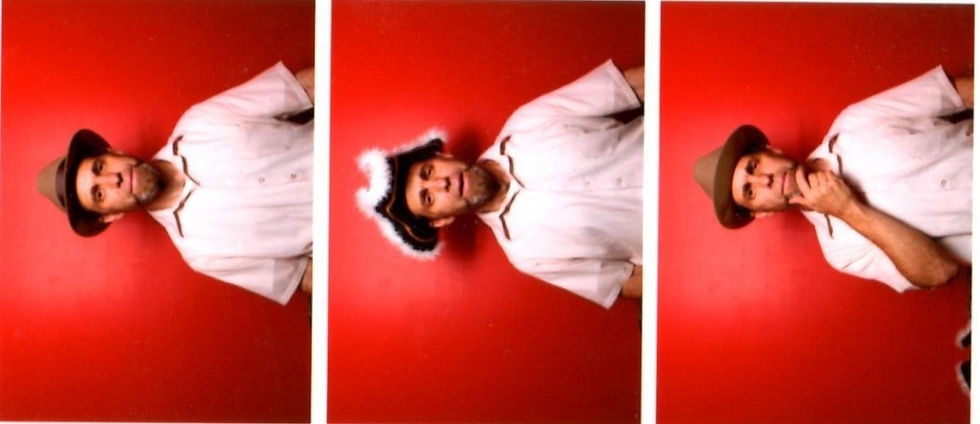Audience and Voice in the Writing Classroom
- Caleb Kriesberg (© 2020 -- 2025)

- Jan 4, 2020
- 3 min read
Updated: Jan 15, 2023

defending asylum-seekers, Washington, DC, June 2018
“When you are as specific as you can be about who you are, you are the most universal,” reflects Dr. Yasye Barnwell, singer and director of the African-American women's a capella group, Sweet Honey in the Rock. In my ENGL101, introductory Techniques of Reading and Writing, students often begin the semester showing enthusiastically and transparently who they are in writing, but by the middle of the semester are concealing themselves behind cautious attention to grammar, punctuation, essay structure, thesis. And it may take them a while to care about, or turn their attention to, who their readers are. I attempted late in the semester, with two writing prompts, to re-introduce students to voice and make them aware of their audience, concepts that are interrelated.
Audience awareness is important in various composition courses. Being aware of a self and a reader is relevant whether one is writing an essay, a lab report, or a resume. I admit to students that the teacher is their principle audience for their compositions, but students are also aware that they could be addressing fellow students or other readers with an interest in the topic. Voice (literary, not grammatical) is the personality of the writer revealed in the text and can help make a composition appealing to the reader regardless of the topic. Famous fictional voices are in Twain’s Huck Finn or Salinger’s Holden Caulfield, but a narrator’s voice can also be nonfiction. I sometimes describe the writer’s voice as “a self in front of someone else.”
A friend who recently received a PhD in journalism suggested the following writing prompt, which might work in business writing courses, or as an icebreaker, to spark awareness of voice. This is a two-part exercise with in-class writing of five-ten minutes for both parts; students can share results.
I. Imagine your inner critic is telling you that you cannot have the job you want in life, and why. Write what that critic would say.
II. Now, answer that critic! Write a letter to the critic, telling why you can indeed have the job you want in life. This writing can contain your voice.
This prompt did not work so well with my ENGL101 class, in part because the course may have been the students’ first emphasizing critical reasoning, because many of the students had not yet declared majors, or because the students may have been ready to write from a viewpoint other than their own.
So, I ventured my second in-class writing prompt for audience and voice. I don't recollect the source of this one―I believe it was a professor’s published testimony about student writing, incorporated in an article on young people and dating. It is not a particularly novel prompt―one of my students said a sociology professor used it for classroom discussion. I told students that they might share the product with classmates. It is the only creative writing assignment I used in the semester:
Imagine you had no choice but to be, for one day, a different sex (while remembering your life experience as your actual sex). For example, if you are a man, then for one day, you had to be physically, mentally, emotionally a woman. If you are a woman, then for one day you had to be physically, mentally, emotionally a man. What do you think the experience would be like? What would you want to experience? What would you want to do and what do you think would happen?
Many of my students—especially those just out of high school—were delighted by this prompt. Most students chose this prompt over some other possible topics I offered concerning men and women. And I received some of the semester’s best in-class writing, with regard to grammar and organization, as a result.
Students pictured an audience because they sensed that their readers might know less, or more, about the point of view than the writer did, but that reader and writer would likely be aware of some near-universal assumptions and misconceptions. The students created their voices sometimes by narrating a specific, first-person account of that day. They may have been influenced and aided by a short story we had just studied, Updike's "A & P," a first-person fictional account of a young man beguiled by a young woman. It would be interesting to compare my results with a woman teacher’s. Generally, in my class, the men responded with drama, while the women planned the day’s activities and hoped to overhear men’s personal dialogues.
Ursula K. LeGuin, fiction writer and essayist, advocating a particular diction for communication, remarked, “The mother tongue, spoken or written, expects an answer. It is conversation.” But diction – well, that is another, related topic.

promoting photographers' rights, Silver Spring, MD, July 2007




Comments